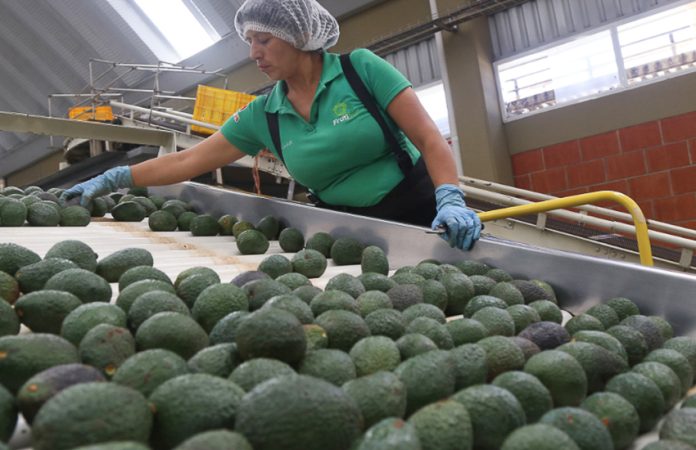Armed avocado farmers have recently made their way into the news again, for challenging not only the cartels that threaten their livelihoods but also the federal government’s unwillingness to do much more than plead with them to lay down their weapons.
Mexico’s “green gold” is the main point of contention, but rural people taking the law into their own hands when the government is absent or impotent is nothing new in Mexico’s history.
Native to Mexico, avocados have been an important crop since before the Spanish arrived. But today, with the very shippable Hass variety, Mexico now exports 2.1 million tonnes of the fruit each year, providing 70% of the world’s supply.
It is the most important food export after beer, worth US $3.1 billion. Mexico ships to 64 countries around the world, but by far, most avocados grown here go to the United States, which has developed a ravenous appetite for guacamole, especially during Super Bowl week.
Sales in early February alone are worth millions of dollars to farmers and shippers.
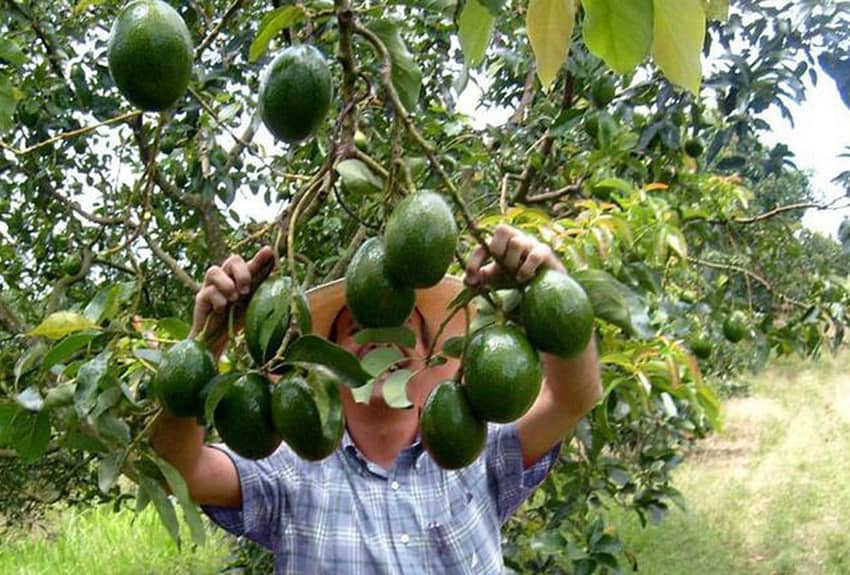
Their mass export out of the country is a relatively recent phenomenon.
Fresh avocados from Mexico were banned by the United States from 1914 to 1997 because of the seed weevil, a pest seen as a threat to U.S. avocados grown primarily in California.
The export of Mexican avocados began instead to Europe, starting in 1988.
The North American Free Trade Agreement and other commercial changes loosened restrictions until a system was set up to allow safe import into the U.S. A boom soon began, and in 2016, avocados became Mexico’s most important produce export, displacing tomatoes.
Today, about 46% of all Mexican exported avocados head to the United States, according to the Association of Mexican Avocado Producers and Packers for Export (APEAM), but all of that export crop must pass United States Department of Agriculture (USDA) inspection before they ever cross the border.
Avocados are also grown in sections of Jalisco, México, Nayarit and Morelos, but over three-quarters of Mexico’s production comes from the state of Michoacán, although Jalisco is Mexico’s fastest-growing producer of avocados, according to the World Resources Institute.
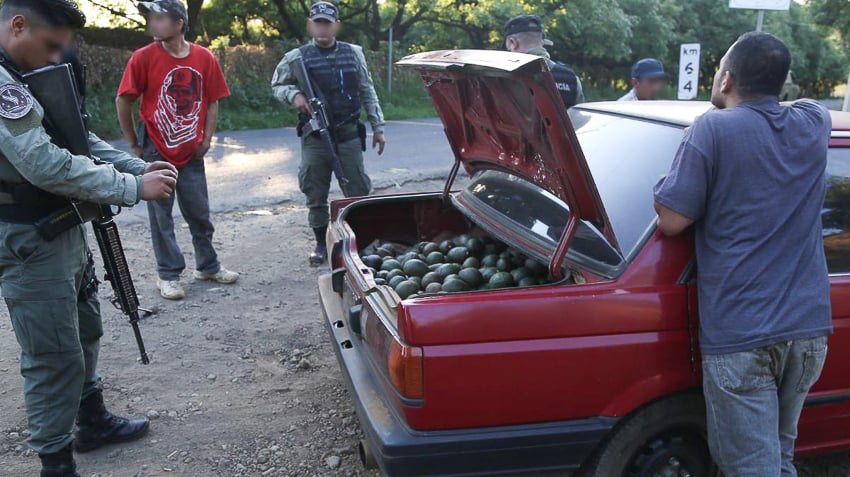
But Michoacán’s climate and groves at various altitudes means that it can ripen avocados year-round.
Avocados have been a huge boon to Michoacán’s economy, which is overwhelmingly still agricultural. The state also produces significant quantities of citrus, guava, melons and berries, but none of these crops come close to the income that avocados provide.
Avocados generate 70,000 jobs in Mexico directly and support another 300,000 indirectly, primarily in Michoacán. As of 2020, Michoacán had 28,000 avocado producers, half of whom hold a hectare or less in cultivation, with 62 certified to export to the United States.
That’s the good news.
Unfortunately, the avocado boom has also brought serious problems to an area of the country that can least afford it. By far, the worst of these problems is with organized crime.
Cartels and other gangs have operated in the state for decades, the most famous of which are narcos bringing product up through Mexico’s west coast. In many cases, drug runners and local populations have had a kind of detente, each keeping mostly out of the others’ way.

But organized crime has never limited itself to drugs: cartels have also been involved in illegal mining and logging, as well as extorting legal businesses, especially charging a cut for crops headed for Michoacán’s main port, Lázaro Cárdenas.
The huge amount of money that avocados bring to the table has broken many of these informal arrangements.
Farmers and others feel (mostly correctly) that local, state and federal authorities can’t — or don’t want to — put a stop to the increasing squeeze on their livelihoods. Despite extremely strict gun laws, farmers in Michoacán and other places have organized into armed groups called autodefensas (self-defense groups) or policia comunitaria (community police), creating checkpoints and even disarming corrupt local police. In some cases, they have been quite effective.
The problem for avocado producers (and others) is quite real: in 2019, USDA inspectors were detained by organized crime members, and the U.S. threatened to shut down inspections, which would have halted exports.
The fighting between vigilantes and cartel members makes for a very public challenge to federal authority, but President López Obrador is reluctant to take on the cartels in any direct way.
Another problem is environmental, as farmers look to take further advantage of lands on which avocados will grow. The World Resources Institute estimates that avocado production has driven 30–40% of deforestation in Michoacán and worries that it threatens other states’ forests as well.
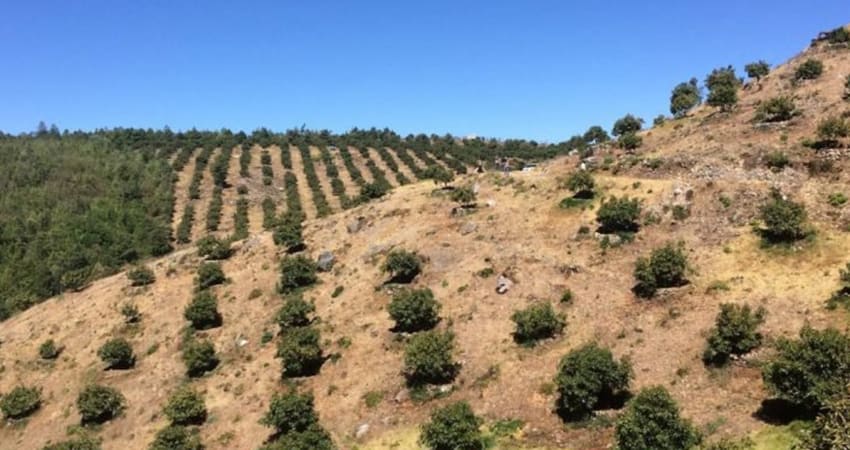
Much of the deforestation is happening on communal lands or lands on which ownership is in dispute. Some groves have worked to get environmentally friendly certifications from organizations such as the Rainforests Alliance, but they are few and far between.
The last problem is one that has not been discussed in the Mexican press but that is a major concern for veteran producer Alejandro Bautista Villegas of Uruapan, Michoacán. He has been a producer for more than 50 years.
The extremely high demand, he says, is causing many producers to take shortcuts to satisfy shippers and take advantage of price spikes. Avocados can take up to a year from flower to ripe fruit and need at least nine months on the tree in order to be viable.
Bautista blames a lack of commitment to quality and regulation on the part of the government for harvesting avocados that are too small and too unripe. He particularly warns against red avocados or avocados with black navels (where the flower was attached), which will never ripen, making them completely useless to the consumer.
This continuing demand and lack of suitable growing conditions has led some Mexican entrepreneurs to look outside the country for new orchards to plant. One country that has benefitted from this is Colombia, especially parts of the country in which avocados can grow and ripen year-round. The nation began exporting avocados in 2013, mostly via Mexican firms.
The avocado situation is a double-edged sword for both Mexico and worldwide consumers. The just say no mentality applied to drugs does not work with a legal, healthy one with very wide appeal.
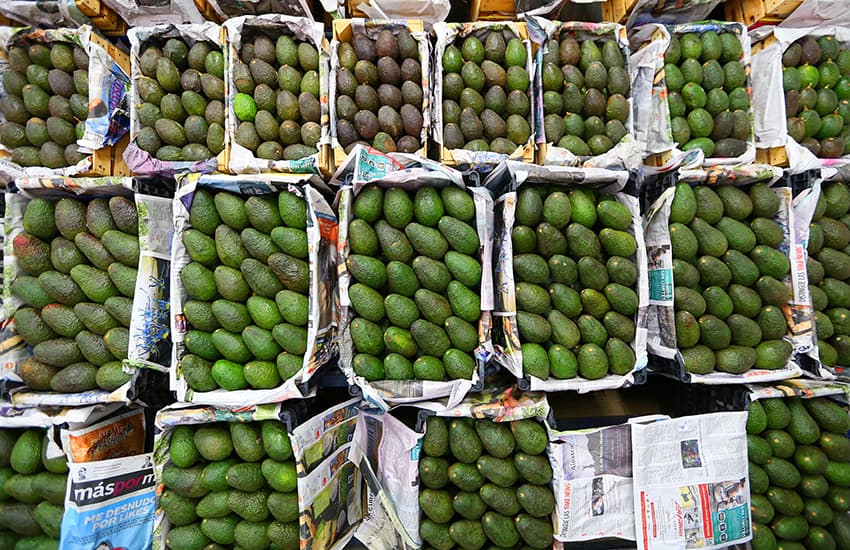
If Mexico cannot get a handle on how to manage its avocado industry, it risks, over time, the loss of its phenomenal share, much like it did with vanilla and chocolate.
Leigh Thelmadatter arrived in Mexico 18 years ago and fell in love with the land and the culture in particular its handcrafts and art. She is the author of Mexican Cartonería: Paper, Paste and Fiesta (Schiffer 2019). Her culture column appears regularly on Mexico News Daily.
